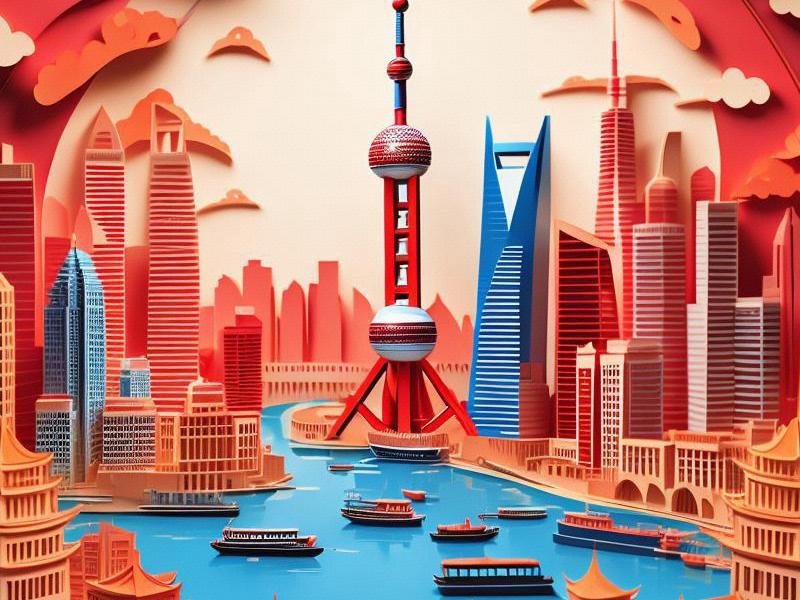Shanghai, a vibrant metropolis on the eastern coast of China, has long been recognized as the "Gateway to the Orient." This dynamic city, with its rich history, rapid urban development, and cultural fusion, stands as a testament to China's transformation over the past century. As one of the world's most populous cities, Shanghai not only serves as a crucial economic hub but also as a cultural and technological powerhouse, bridging the East and the West.

Shanghai's historical significance dates back to the 19th century when it was forced open to foreign trade as one of the Treaty Ports. This period marked the beginning of Shanghai's transformation into a cosmopolitan city, attracting merchants and immigrants from around the globe. The Bund, with its iconic skyline of colonial-era buildings, stands as a living museum of this era, offering a glimpse into the city's colonial past.
The 20th century saw Shanghai rise as a global financial center, rivaling New York and London. The city's prosperity during this time was reflected in its bustling markets, luxurious hotels, and vibrant nightlife. However, the tumultuous political changes of the century also left their mark on Shanghai, as it experienced periods of war and revolution.
In the post-World War II era, Shanghai began to rebuild and modernize, emerging as a symbol of China's economic reform and opening up. The establishment of the Pudong New Area in the 1990s marked a new chapter in Shanghai's development. Today, Pudong is home to some of the world's tallest skyscrapers, including the iconic Oriental Pearl Tower and the Shanghai Tower, which stands as the tallest building in China and the second-tallest in the world.
爱上海论坛 Shanghai's rapid urban development has not only transformed its skyline but also its infrastructure and public services. The city boasts an extensive metro system, efficient public transportation, and world-class healthcare and education facilities. These advancements have made Shanghai a宜居宜业 (livable and workable) (livable and suitable for business) city, attracting millions of residents and countless businesses.
Culturally, Shanghai is a melting pot of traditions and modernity. The city is renowned for its art deco architecture, which can be seen in areas like the French Concession. It is also the birthplace of 上海话 (Shanghainese dialect) (Shanghainese dialect), a variant of Wu Chinese, and 本帮菜 (Shanghai cuisine) (Shanghai cuisine), known for its sweet and savory flavors. Modern Shanghai, however, is just as famous for its contemporary art scene, with galleries and museums like the Power Station of Art and the M50 Creative Park showcasing both domestic and international artists.
Shanghai's role as a global hub is further emphasized by its numerous international events and exhibitions. The city has hosted the World Expo in 2010, attracting millions of visitors from around the world. The expo not only showcased China's development but also highlighted Shanghai's ability to host large-scale international events. More recently, Shanghai has been a key player in the G20 and B20 summits, further cementing its status as a global leader.
上海花千坊爱上海
The city's commitment to innovation and technology is evident in its burgeoning tech scene. Shanghai's Zhangjiang Hi-Tech Park is home to many leading technology companies, including Alibaba, Tencent, and Huawei. The city is also at the forefront of China's digital transformation, with initiatives like 上海智慧城市 (Smart City Shanghai) (Smart City Shanghai) aiming to make urban life more efficient and sustainable.
Shanghai's position as a gateway to the Orient is not just geographical but also cultural and economic. The city serves as a bridge between China and the rest of the world, facilitating trade, investment, and cultural exchange. Its well-connected international airport and busy port make it a vital link in global supply chains.
爱上海419论坛 The city's efforts to preserve its history while embracing modernity are commendable. Initiatives like the 上海滩历史博物馆 (Shanghai Beach History Museum) (Shanghai Beach History Museum) and the 上海城市规划展示馆 (Shanghai Urban Planning Exhibition Center) (Shanghai Urban Planning Exhibition Center) allow residents and visitors to learn about the city's past and future.
Shanghai's future looks promising as it continues to evolve into a global leader in various fields. The city's government has set ambitious goals for sustainable development, including reducing carbon emissions and promoting green technologies. Shanghai's resilience and adaptability have been key to its success, and these qualities will undoubtedly guide it through the challenges of the future.
In conclusion, Shanghai's journey from a colonial port to a global metropolis is a story of transformation and resilience. As the "Gateway to the Orient," Shanghai continues to attract people from all over the world, offering them a glimpse into the dynamic and ever-changing China. Whether you are interested in history, culture, business, or technology, Shanghai has something to offer, making it a must-visit destination for anyone looking to understand the complexities of the modern world.